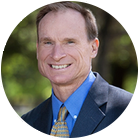Education
Education is one of the biggest factors in determining a person’s economic outcome. And the trajectory for high- or low-wage workers doesn’t begin in college, or even high school. Starting in preschool, the youngest learners are set on an educational path that can have a profound impact on their earning potential as adults. At SIEPR, researchers draw on their economic expertise to study how people invest in education, and how educational opportunities evolve due to policy and competition. SIEPR scholars also quantify the effects that education has on other important outcomes in developed and developing nations around the world.
Keywords: early childhood, K-12, higher education, human capital
People in Education Research
- Professor of Economics
- Assistant Professor
- Professor of Economics
- Professor of Education
- Professor of Law and Political Science, Emeritus
- Professor of Education
- Professor of Finance
- Associate Professor of Political Science
- Professor of Economics
- Professor of Sociology
- Professor of Economics
- Professor of Economics
- Assistant Professor of Economics
- Co-Director, Stanford Center on China's Economy and Institutions (SCCEI)
- Professor of Education
- Senior Fellow
- Professor of Economics
- Professor of Economics, Emeritus
- Professor of Economics
- Professor of Economics, Emeritus
- Professor of Poverty and Equality in Education
- Associate Professor of Health Policy
- Professor of Economics
- Professor in International Agricultural Policy
- Charles R. Schwab Professor of Economics, Emeritus
- Assistant Professor of Economics
- Assistant Professor of Finance
Related Publications
- Ahmed, S., Goda, G. ., Hahn, M., & Hehmeyer, P. (2023). Following the rules: Connecting academic research to policy. Policy Brief.
- Abramitzky, R., Boustan, L. ., Jácome, E. ., Pérez, S., & Torres, J. . (2023). Law-Abiding Immigrants: The Incarceration Gap Between Immigrants and the US-born, 1850–2020. Working Paper.
- Barrero, J. ., Bloom, N., & Davis, S. . (2023). The Evolution of Working from Home. Working Paper.
- Gottlieb, J., Polyakova, M., Rinz, K., Shiplett, H., & Udalova, V. (2023). Who Values Human Capitalists’ Human Capital? The Earnings and Labor Supply of U.S. Physicians. Working Paper.
- Hanushek, E. (2022). A simple and complete solution to the learning loss problem . Policy Brief.
- Athey, S., & Palikot, E. (2022). Effective and scalable programs to facilitate labor market transitions for women in technology. Working Paper.
- Bettinger, E., Fairlie, R., Kapuza, A., Kardanova, E., Loyalka, P., & Zakharov, A. (2022). Does EdTech Substitute for Traditional Learning? Experimental Estimates of the Educational Production Function. Working Paper.
- Gust, S., Woessmann, L., & Hanushek, E. . (2022). Global Universal Basic Skills: Current Deficits and Implications for World Development. Working Paper.
- Brodeur, A., Cook, N. ., Hartley, J. ., & Heyes, A. (2022). Do Pre-Registration and Pre-analysis Plans Reduce p-Hacking and Publication Bias?. Working Paper.
- Bulman, G., & Fairlie, R. (2022). The Impact of COVID-19 on Community College Enrollment and Student Success: Evidence from California Administrative Data . Working Paper.
- Bates, M., Dinerstein, M., Johnston, A., & Sorkin, I. (2022). Teacher Labor Market Equilibrium and Student Achievement. Working Paper.
- Otero, S. ., Barahona, N., & Dobbin, C. (2021). Affirmative Action in Centralized College Admission Systems: Evidence from Brazil . Working Paper.
- Diamond, R., & Moretti, E. (2021). Where is Standard of Living the Highest? Local Prices and the Geography of Consumption. Working Paper.
- Einav, L., Finkelstein, A., & Mahoney, N. (2021). The IO of Selection Markets. Working Paper.
- Dupas, P., Modestino, A. S., Niederle, M., Wolfers, J., & Collective, S. D. (2021). Gender and the Dynamics of Economics Seminars. Working Paper.
- Oliver, D., Fairlie, R., Millhauser, G., & Roland, R. (2021). Minority Student and Teaching Assistant Interactions in STEM. Working Paper.
- Jha, S., & Shayo, M. (2021). Trading Stocks Builds Financial Confidence and Compresses the Gender Gap. Working Paper.
- Larsen, B., Ju, Z., Kapor, A., & Yu, C. (2020). The Effect of Occupational Licensing Stringency on the Teacher Quality Distribution. Working Paper.
- Cabral, M., Kim, B., Rossin-Slater, M., Schnell, M., & Schwandt, H. (2020). Trauma at School: The Impacts of Shootings on Students’ Human Capital and Economic Outcomes. Working Paper.
- Bulman, G., Fairlie, R., Goodman, S., & Isen, A. (2020). Parental Resources and College Attendance: Evidence from Lottery Wins. Working Paper.
- Robles, S., Gross, M., & Fairlie, R. (2020). The Effect of Course Shutouts on Community College Students: Evidence from Waitlist Cutoffs. Working Paper.
- Abramitzky, R., Boustan, L., Eriksson, K., Feigenbaum, J., & Pérez, S. (2020). Automated Linking of Historical Data. Working Paper.
- Abramitzky, R., Boustan, L., Jácome, E., & Pérez, S. (2020). Intergenerational Mobility of Immigrants in the US over Two Centuries. Working Paper.
- Abramitzky, R., Lavy, V., & Pérez, S. (2020). The Long-Term Spillover Effects of Changes in the Return to Schooling. Working Paper.
- Abramitzky, R., & Halaburda, H. (2020). Were Jews in Interwar Poland More Educated?. Working Paper.
- Ma, Y., Fairlie, R., Loyalka, P., & Rozelle, S. (2020). Isolating the "Tech" from EdTech: Experimental Evidence on Computer Assisted Learning in China. Working Paper.
- Rossin-Slater, M., Schnell, M., Schwandt, H., Trejo, S., & Uniat, L. (2019). Local Exposure to School Shootings and Youth Antidepressant Use. Working Paper.
- Schwandt, H. (2019). Recession Graduates: The Long-lasting Effects of an Unlucky Draw. Policy Brief.
- Hoxby, C., & Turner, S. (2019). Measuring opportunity in U.S. higher education. Working Paper.
- Dee, T., & Murphy, M. (2018). Vanished classmates: the effects of local immigration enforcement on student enrollment. Working Paper.
Related News
-
Daniel Ho, Muriel Niederle elected to the American Academy of Arts and Sciences
SIEPR senior fellows Daniel Ho and Muriel Niederle join a distinguished group of members who are recognized for excellence and leadership in work that advances the common good.
April 26, 2024
-
7 in 10 U.S. adults surveyed are stressed about money, CNBC finds. Here’s how you can feel financially secure.
Boosting your money knowledge can help you feel more financially secure, CNBC finds. SIEPR Senior Fellow Annamaria Lusardi is quoted.
April 03, 2024
-
American Children Are Struggling Academically
Newsweek reports on how students are recovering academically from school closures due to the COVID-19 pandemic, citing research from SIEPR Senior Fellow Sean Reardon
April 03, 2024
Upcoming SIEPR Events
-
Associates Meeting
Geopolitics and Its Impact on Global Trade and the Dollar
Co-Sponsoring with the Hoover Institution and the Stanford King Center on Global Development-John A. and Cynthia Fry Gunn Building
366 Galvez Street
Stanford, CA 94305
United States -
Academic Conference
2024 Summer Economic Institute for Teachers
Economic Challenges for the 21st CenturyThirty Seventh Annual Event for Teachers-Stanford University
John A. and Cynthia Fry Gunn Building
366 Galvez Street
Stanford, CA 94305
United States


























